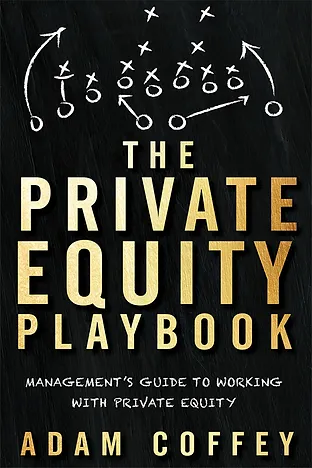David Lovejoy
3
min read
From Service to Success: Military Principles for Business Success
Adam Coffey
Private Equity Guru | 2x Best-Selling Author
Key Highlights
Military Principles in Business: Drawing from his experience in the United States Army, Private Equity Guru Adam Coffey shares how discipline, teamwork, and leadership form the bedrock of successful business environments. Discover the profound impact of 'servant leadership' on Adam's remarkable career trajectory.
Strategic Planning and Engineering Expertise: Leveraging his engineering background in classified radar and anti-aircraft missile systems, Adam underscores the value of meticulous planning and precision in business. Learn how this unique combination of skills allowed him to navigate the challenges of an ever-evolving business landscape.
Navigating Transitions and Filling Skill Gaps: Explore Adam's calculated approach to industry transitions and the importance of recognizing and filling skill gaps in leadership. From hiring complementary team members to inspiring others, gain insights into the strategies that have propelled Adam's business success.
Unleashing Leadership Potential
In today's dynamic business environment, discipline, teamwork, and leadership skills are critical to success. In a recent interview, Private Equity Guru and Best-Selling Author, Adam Coffey, shared insights on how military principles propelled him to excel in the business world.
Adam began his career as a private in the United States Army, highlighting the importance of discipline, teamwork, and leadership in military and business environments. In the military, individuals from diverse backgrounds must collaborate effectively to achieve common goals. Overcoming biases and valuing input from team members leave a lasting impact on those who serve.
This foundation is also vital in business, where Adam refers to it as "servant leadership." This concept involves leaders prioritizing their team's needs and involving them in the organization's vision. Although the military has produced servant leaders for centuries, the business world has only recently adopted this term.
Engineering Expertise and Strategic Planning
Besides his military background, Adam's engineering skills have been invaluable in his business career. His experience working on classified radar and anti-aircraft missile systems at Redstone Arsenal / NASA's Marshall Space Flight Center instilled a foundation of meticulous planning and precision, proving crucial in his career. By combining military discipline, engineering expertise, and strategic planning, Adam has tackled the challenges of an ever-evolving business landscape and achieved remarkable success.
Managing Change and Driving Growth
Adam emphasizes the importance of an informal feedback loop, maintaining open communication with employees at all levels. This approach allows for more effective adjustments and ensures everyone in the organization is on the same page. Through years of trial and error, he has developed a strategic approach to driving growth and managing change.
Navigating Industry Transitions and Filling Skill Gaps
When transitioning between industries, Adam underscores the importance of calculated steps. For example, for a C-suite position in a private equity-backed company, he suggests first reaching a certain level in a Fortune 500 company and then making a lateral move within the same industry. This strategy mitigates risks while offering the potential for substantial rewards.
Regarding filling skill gaps in leadership, Adam emphasizes inspiring others over being the most intelligent person in the room. He cites Obama as an example, who successfully inspired millions with hope, despite its intangible nature. Articulating a vision and motivating people can lead to great success. Recognizing one's skill gaps is also essential. Adam, an operator by nature, acknowledges his need for a vital CFO to provide financial insights and strategic guidance. Leaders can create diverse and influential teams by hiring people to complement their strengths and weaknesses.
Conclusion
Leaders should surround themselves with subject matter experts from various functional areas to avoid groupthink and encourage diverse perspectives. This approach promotes a healthy exchange of ideas and facilitates better decision-making. As a consensus leader, Adam values broad-based input on company issues and works collaboratively with his team to drive success. In conclusion, aspiring executives and entrepreneurs can climb the corporate ladder, build empires, and create lasting legacies in the business world by taking calculated risks, recognizing personal skill gaps, and fostering a diverse and inspiring leadership environment. Watch for Adam’s upcoming 3rd book, Empire Builder, later this fall, where he lays out the strategy for building your own billion-dollar business.




